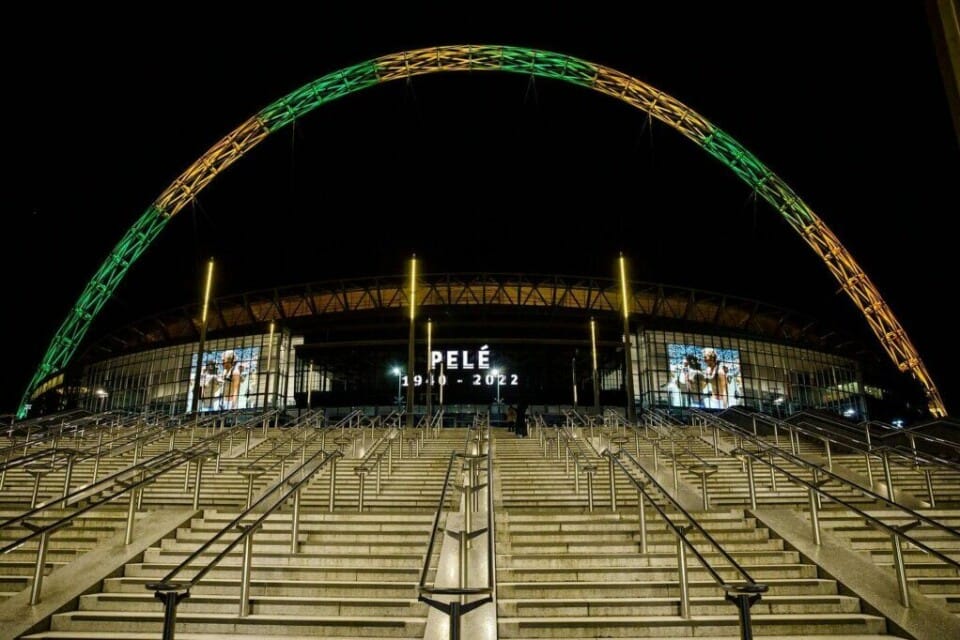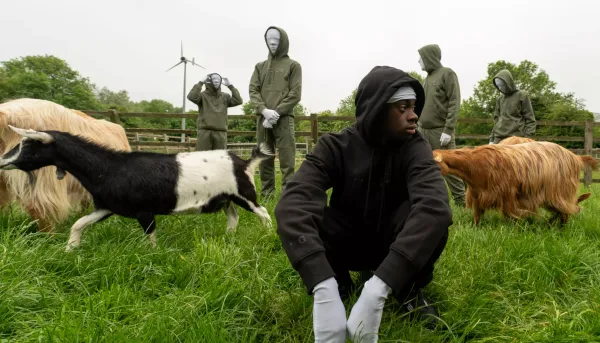Pelé – A legacy that will play on in history

On December 29th 2022, the world was shaken by the devastating news of Edson Arantes do Nascimento’s (Known to the world as Pelé) passing. The Brazilian football icon had been fighting colon cancer for a number of years, but sadly his battle came to an end with his family by his side.
Pelé was widely regarded as one of the greatest football players of all time, with a goal-to-game record only rivalled by Cristiano Ronaldo and Lionel Messi. He spent the majority of his career playing for his boyhood team Santos, where he holds the accolade of being their highest-ever goal scorer with over 600 goals, a record unlikely to be broken. He also played for a short period in the USA with the New York Cosmos between 1975 and 1977, which he was fondly remembered for.
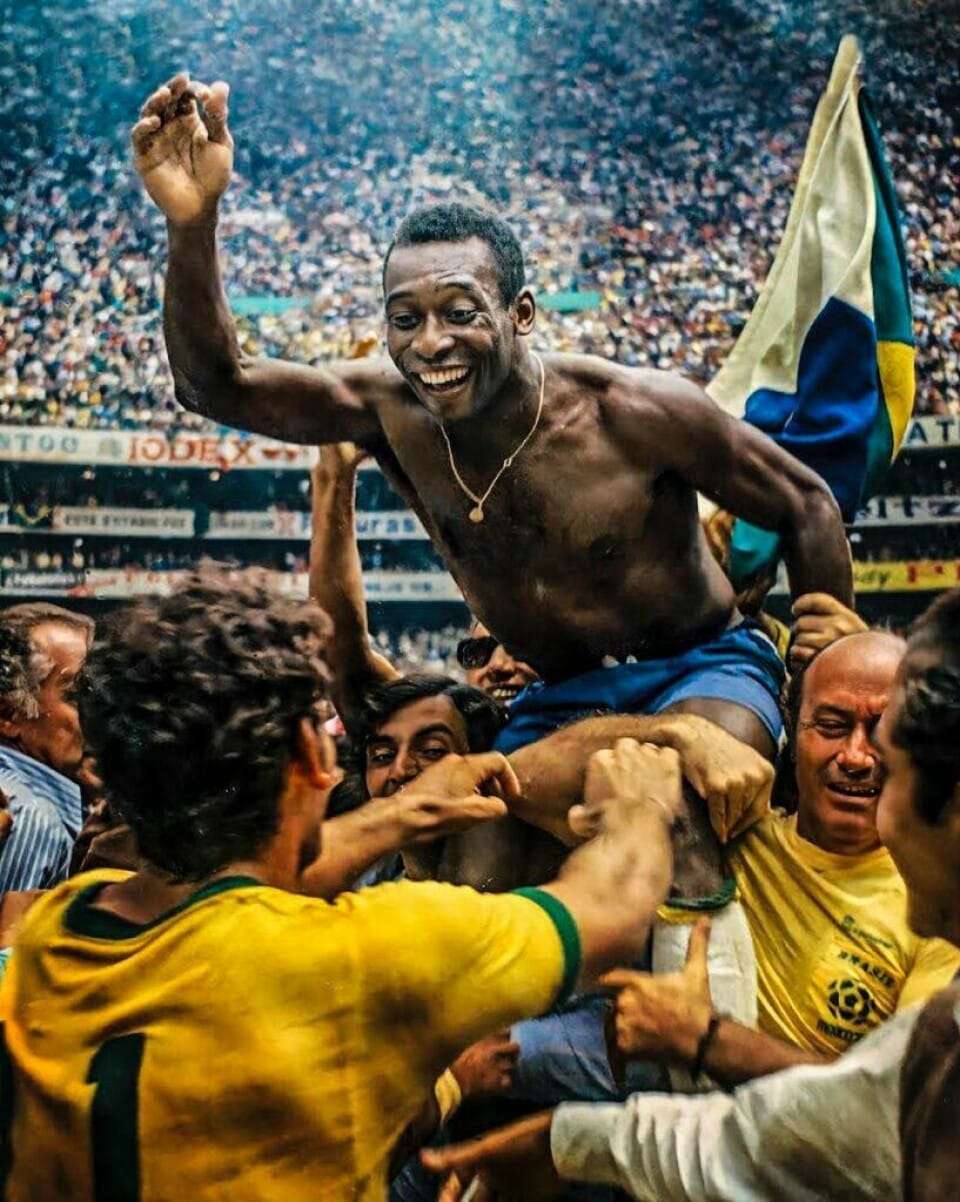
Despite his unbelievable goalscoring record for Santos and the New York Cosmos, it’s Pelé’s performances on the international stage that helped him become a worldwide name. He captured the imagination of football fans across the world during his performances at the 1958, 1962 and 1970 World Cups – all of which were won by Brazil. In 1958, he became the youngest-ever scorer in a World Cup final and by the time the 1970 World Cup came around he was already established as the greatest footballer ever. He further cemented his legacy by dominating opponents throughout the tournament – eventually winning both the Jules Rimet trophy and the golden ball, awarded to the tournament’s best player. To this day, he remains the only footballer to have won the World Cup three times.
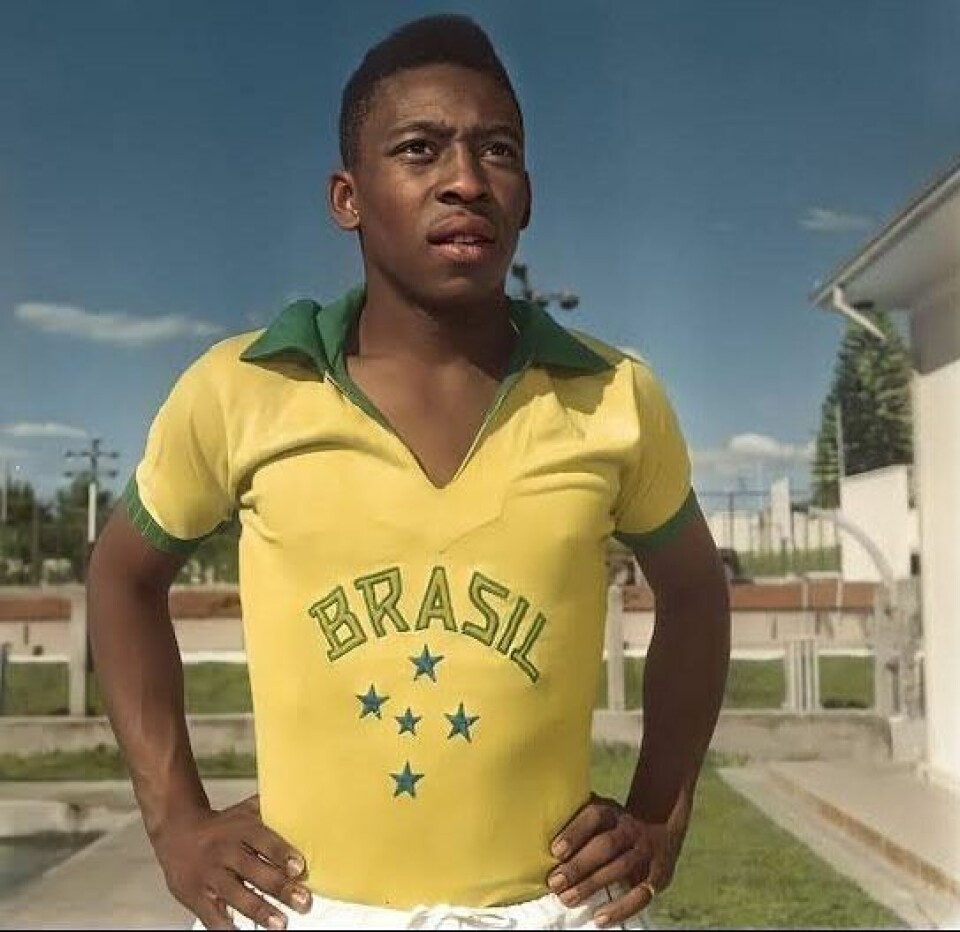
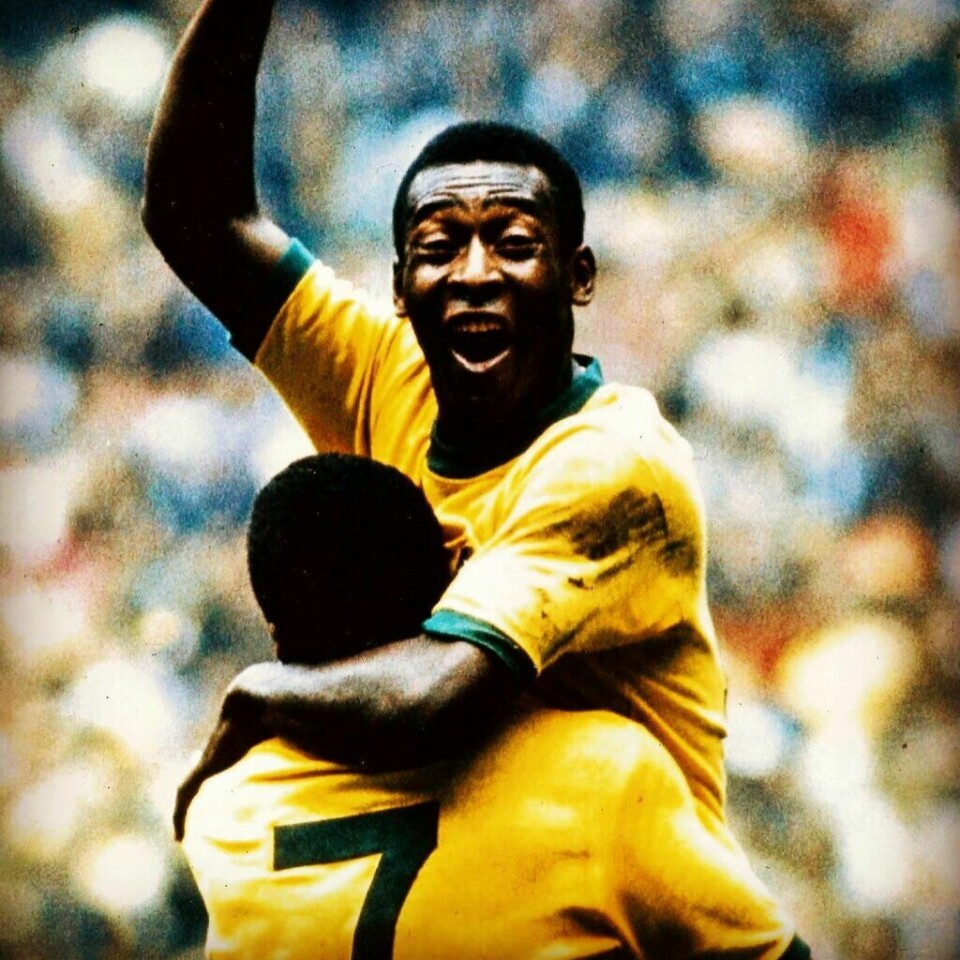
The legendary man made an appearance in Birmingham, playing for Santos in a friendly game against Aston Villa, at Villa Park in 1972. The match drew in a crowd of over 54,000 people. (It’s nice to know that a piece of Pelé’s legacy is located in Brum)
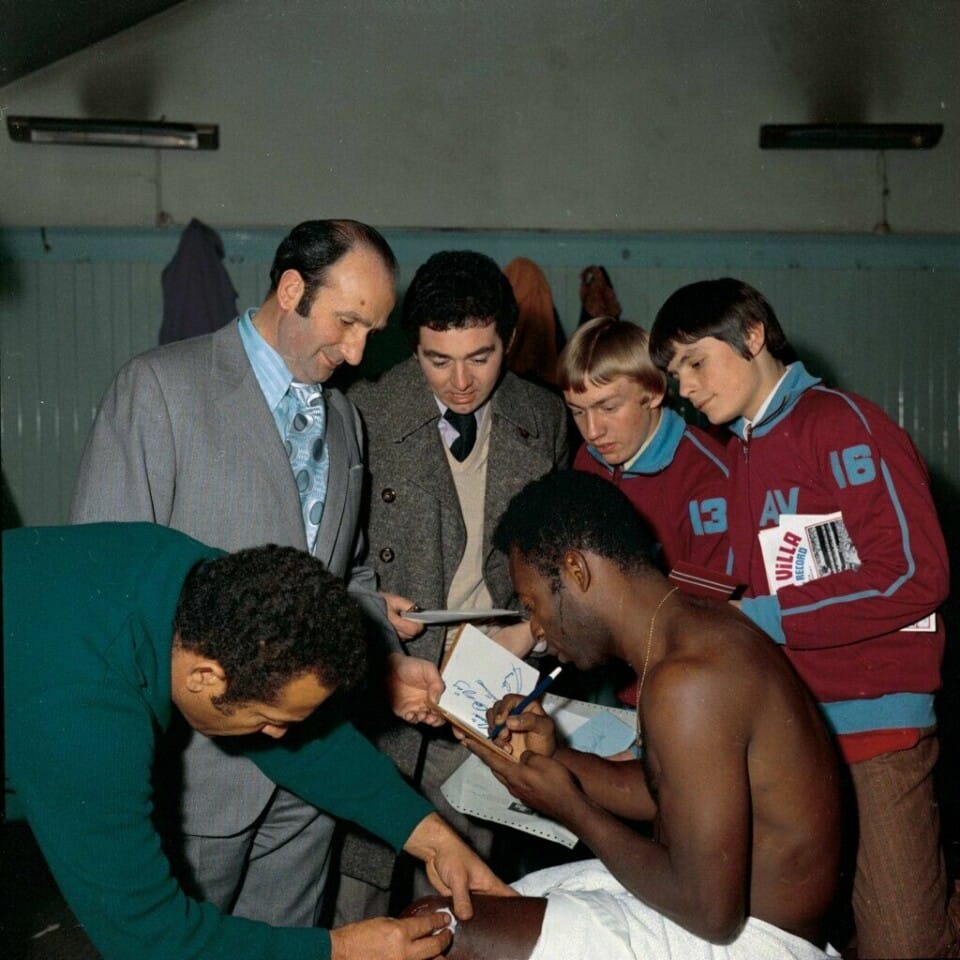
After a glittering football career, filled with trophies and silverware, Pelé became a huge force for good off the pitch – engaging in a number of different charitable endeavours, giving donations to a number of charitable causes. In 2004, he worked alongside FIFA and SOS Children’s Villages: a charity that provides children with humanitarian aid to protect their safety and security. He was also an ambassador for a number of projects involving the United Nations, acting as a goodwill ambassador for UNICEF from 1994 right up until his passing. As well as this, he acted as an ambassador for UNESCO – promoting environmental protection, and expressing the value of sport as a tool for peace and sustainability.
In 2018, Pelé set up his own charitable organisation, The Pelé Foundation. with the mission of empowering children, specifically through poverty alleviation and increasing access to education. Pelé spoke of his determination to give children the best chances in life so they can go and achieve their goals. The organisation has also provided support and funding to other charities around the world including both Charity:Water and Pencils for Promise.
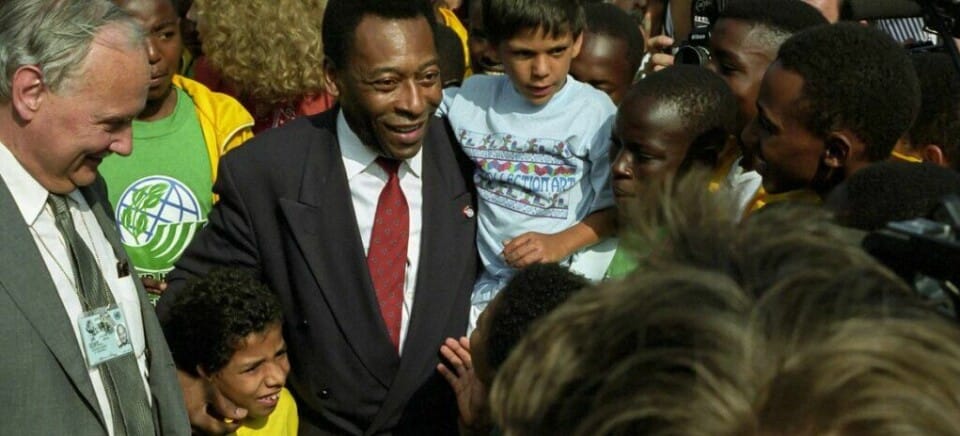
The impact of Pelé’s death was clearly seen in the tributes paid to him by clubs around the world – from the biggest teams all the way through to the lower leagues. The icon has left a huge legacy with many footballers taking to social media to express their sadness –Lionel Messi and his PSG teammate Neymar wore specially designed shirts to honour him. Also, FIFA renamed their main football pitch at their Zurich headquarters to ‘Estádio Pelé – FIFA Zürich’, an act that will allow for Pelé’s legacy to live on.
